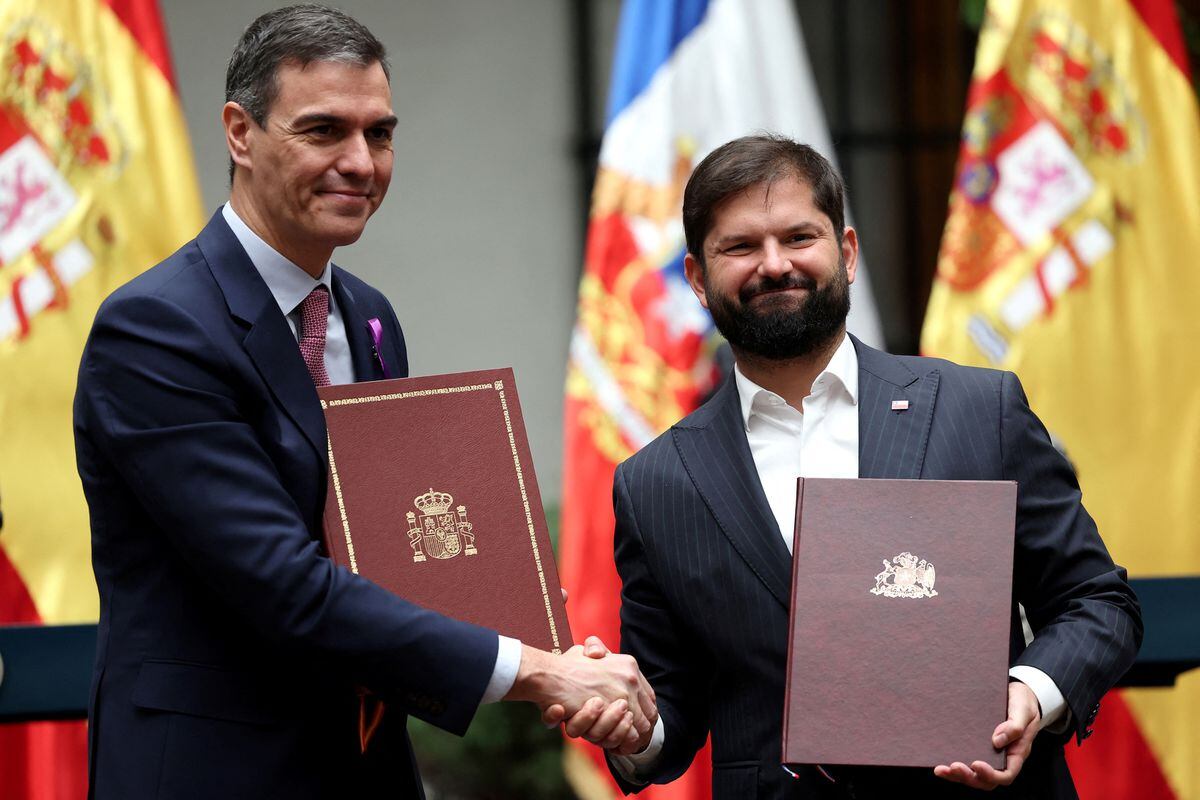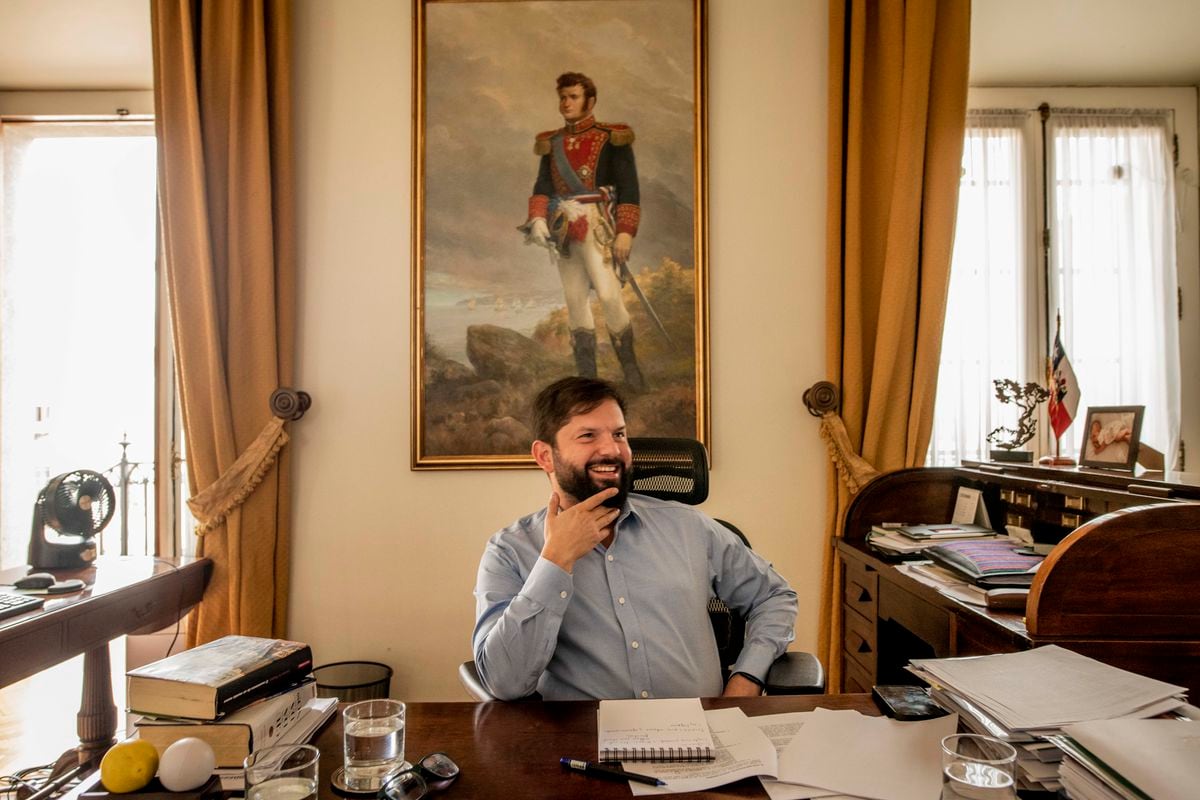Gabriel Boric is 35 years old. In March, he will become the youngest president in the history of Chile. His political career was forged on the street, during the student protests of 2011, and far from the traditional politicians of the Chilean left, such as former presidents Ricardo Lagos or Michelle Bachelet. His figure grew even facing them, despite the approach that was due to electoral necessity in the second round. Boric's course is original, but he is not the only young politician looking to break through. There are names that already sound strong, like Andrónico Rodríguez in Bolivia or Guilherme Boulos in Brazil. In Argentina, young people clash with Peronism and still need the permission of the founders, or the founder, to grow up: Cristina Fernández de Kirchner still says who has the right to raise his head to power.In Colombia, young politicians have it more complicated. In that country, the social discontent that made Boric grow in Chile was capitalized on by a veteran of the left, Gustavo Petro, 61 years old. In Mexico, the break with the past promoted by Andrés Manuel López Obrador did not coincide with a generational change and the young politicians with more projection do not come from the left.
Boric went from the front lines of the protests to Congress, and from there he jumped to La Moneda in record time. But you are not alone. The new president will have at his side two figures as young as he and with great political projection. His future will depend on the fate of the administration, but if everything goes well Boric will have heirs in a country that does not allow consecutive re-election: deputy Giorgio Jackson and the campaign manager for the second round, the doctor Izkia Siches. Jackson could even be Boric, but at the time of registering the candidacy of the Broad Front, he did not reach the minimum age required by Chilean law for months. Siches, who will turn 36 on March 4, is another rising figure. After the first round of November 21, he took on the electoral campaign and toured the country with his newborn son.She is credited with the overwhelming support Boric had among young women.
The relationship with the founding fathers of the left is the yardstick that measures the projection of these new figures. If they broke up with them in Chile, in an absolutely original experience, it has not been so easy in the rest of the continent. The case of Brazil is obvious. Veteran activist Guilherme Boulos, 39, is undoubtedly the most prominent figure among the new generation of the Brazilian left, but the political resurrection of Lula da Silva cut short his projection. It was as if a top scorer appeared that sent him back to the bench after having excited the fans by scoring a good goal.
This university professor and leader of social movements for housing was a candidate for the Presidency in 2018 and, two years later, he became the surprise of the municipalities when he went to the second round in the race for mayor of his hometown, São Paulo, the richest and most populous in Latin America.
For an activist to conquer the City Hall would have been a feat.
In any case, with Lula imprisoned, that result placed him as the most promising leader of a left that was experiencing its lowest hours.
Guilherme Boulos speaks during a seminar on technology and digital inclusion with other candidates for mayor of Sao Paulo, Brazil, in August 2018. Andre Penner (AP)
But on March 8, 2021, when nobody expected it, a judicial decision changed everything: the Supreme Court annulled the sentences against Lula. A tsunami that moved all the pieces of the political board. In an instant, any expectation around Boulos was pulverized. The Brazilian left recovered its great leader, the most charismatic, the one who never allowed any successor to emerge in the Workers' Party (PT) to overshadow him. At 76, Lula does not miss the opportunity to remember that he is younger than Joe Biden, president of the United States, and polls have placed him months ago as the favorite for the 2022 elections.
Boulos never was a member of the PT. He belongs to the PSOL (Socialism and Freedom Party), a split to the left of Lula's formation to which the murdered councilor Marielle Franco also belonged. Boulos's physical resemblance to the trade unionist Lula of the eighties is striking. Same beard, similar outfit. He has always had an ambivalent relationship with the former president. He acknowledges his leadership among Brazilian progressives, but his parties compete for this segment of votes that has dwindled in recent years. However, in important moments he always accompanies Lula. Boulos's plans to run for governor of São Paulo in the October 2022 elections will place him in clear confrontation with the PT, which is running for its own candidate.
Young people find it extremely difficult to stand out in Brazilian politics, which is still heavily dominated by white men with gray hair, both on the right and on the left. Along with Boulos, another promise inclined to the center left could be scored. Tabata Amaral, 28, a federal deputy. Adored by the press for its freshness and oratory, it is the product of movements that have found a vein in Brazil in the face of the discredit of traditional political parties. They are dedicated to recruiting talented candidates (and a good life history), and training them to contest elections. Amaral, from a humble family and orphan of a drug dependent father, was a brilliant student who with effort and scholarships came to study at Harvard. Now he fights in Congress.
In Argentina, meanwhile, any rising figure on the left must go through the ideological and political filter of Cristina Fernández de Kirchner. The former president has a dolphin, Axel Kicillof, and an aspiring son, Máximo Kirchner. But if they were ever promising youngsters, the first turned 50 in September, and the second is 44 years old. Kicillof bears the burden of management, because as governor of the province of Buenos Aires, the largest and most populated in the country, his political figure loses steam in the heat of the endless Argentine crisis. Furthermore, the government is not a good place to make friends. Responsible for distributing the budget, Kicillof is at the center of all tensions with the Peronist mayors of the different districts and cannot escape the internal fights of the party.
Deputy Máximo Kirchner, in the center, makes a victory gesture in Congress while awaiting the arrival of the president, Alberto Fernández, in Buenos Aires, on March 1, 2020 MARCOS BRINDICCI (AP)
Máximo Kirchner, meanwhile, carries the surname.
His parents made an effort to enlarge his figure by putting him at the head of La Cámpora, the youth group of Kirchnerism, and today he is head of the official bloc in Deputies.
Public exposure finds him in the front line of fire, like Kicillof.
His career runs between the need to distance himself from his mother and being, at the same time, bishop of the vice president in the Casa Rosada, where relations with the president, Alberto Fernández, are not good.
In any case, its capital is already that of the old policy and not that of renewal.
Bolivia is another clear example of a young man anointed as a successor by a political father. Andrónico Rodríguez is 32 years old and is the shadow of Evo Morales. The Bolivian media call him bluntly "the heir." Rodríguez has been the president of the Senate since 2020, third in the line of succession, and vice president of the six coca growers federations in the Cochabamba tropics, the union platform from where Evo Morales jumped into the Quemado Palace in 2006. The young coca grower leader graduated in Science Politics with 22 years and since 2018 has accompanied Morales in every public act where he participates in Chapare, the territorial heart of the MAS. “The President tells us that we are all on the road, but not all of us reached the goal. The older leaders have hindered us, but the President advises us, ”Andrónico said in 2019,when Morales was still head of state and aspired to reelection.
Andronico Rodriguez Ledezma receives the credentials of senator, on October 27, 2002 in La Paz, Bolivia.DAVID MERCADO (Reuters)
The Bolivian senator has an advantage, which is also his burden. If MAS does well, its projection is immense, but its future still depends on the elderly. These same seniors are the ones who, at least for now, are a wall for young Colombian politicians. Colombia, like Chile, is also coming off an unprecedented social explosion. There, the protests were directed against the government of Iván Duque, at 45 years old the youngest president in the recent history of the country, but conservative and from the political establishment, unlike Boric. In the wave of protests that had already rocked the country before the pandemic, at the end of 2019, the student movement played a leading role, with students from public and private universities.
In political terms, it was not a young man who had come out of the riots who capitalized on the discontent, but the leftist Gustavo Petro, 61 years old. Petro is the best positioned presidential candidate for the presidential elections of 2022. In a very crowded campaign, with more than a score of candidates, the polls of their respective alliances are also led by well-known figures such as former governor Sergio Fajardo (65 years old), from the center , or the former mayor Federico Gutiérrez (47), from the right. However, among the candidates of the Centro Esperanza Coalition, which includes Fajardo, there is also Carlos Amaya, 37, a former student leader who in 2010, at the age of 25, was the youngest congressman in Colombia, accompanied the peasants in the agrarian strikes of 2013 and later he served as governor of the department of Boyacá.
The presidential elections in May are preceded by the legislative elections in March. In the lists to Congress there are more young faces as options for political renewal. Some linked to the demonstrations, such as Jennifer Pedraza, a 26-year-old candidate for the Chamber, who was a visible student representative of the National University and a member of the Unemployment Committee that brought together the organizations that called the protests. "We have been repressive governments for years, with an overly orthodox paradigm of the economy," Pedraza told this newspaper in May, when the fuse of the social outbreak had already lit in Colombia. "That has not made life easier for current generations, but more and more difficult."
From Mexico, the Government of Andrés Manuel López Obrador celebrated Boric's victory as a triumph of democracy in Latin America. But the political harmony does not necessarily coincide with the phenomenon of renewal that occurred in Chile. The Mexican president, a veteran leader of the left, embodied with his arrival to power in 2018 a break with the past that did not mean a generational change in the ranks of progressivism in that country. The main candidates to succeed them are politicians with a long history, from the mayor of Mexico City, Claudia Sheinbaum, 59, to Chancellor Marcelo Ebrard (62) or Senator Ricardo Monreal (61). And the inability of the president to understand the demands, for example, of the feminist movement has contributed to widening the gap with the youngest.
The figures with more projection in the new generations of politicians do not come precisely from the left militancy, although they are not clearly located to the right of the board either.
The mayor of Monterrey, Luis Donaldo Colosio, son of the former PRI presidential candidate assassinated in 1994, is one of them.
Samuel García, governor of the State of Nuevo León, is another of the names with more presence, with a more populist style and a regionalist discourse that seeks to be a counterweight to López Obrador from northern Mexico.
Both come from Movimiento Ciudadano, an opposition group that intends to occupy the space of the traditional forces -PRI, PAN and PRD- and become a symbol of the new politics.
Register here for the EL PAÍS América newsletter and receive all the information keys on current affairs in the region.

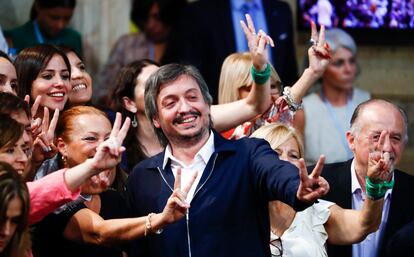
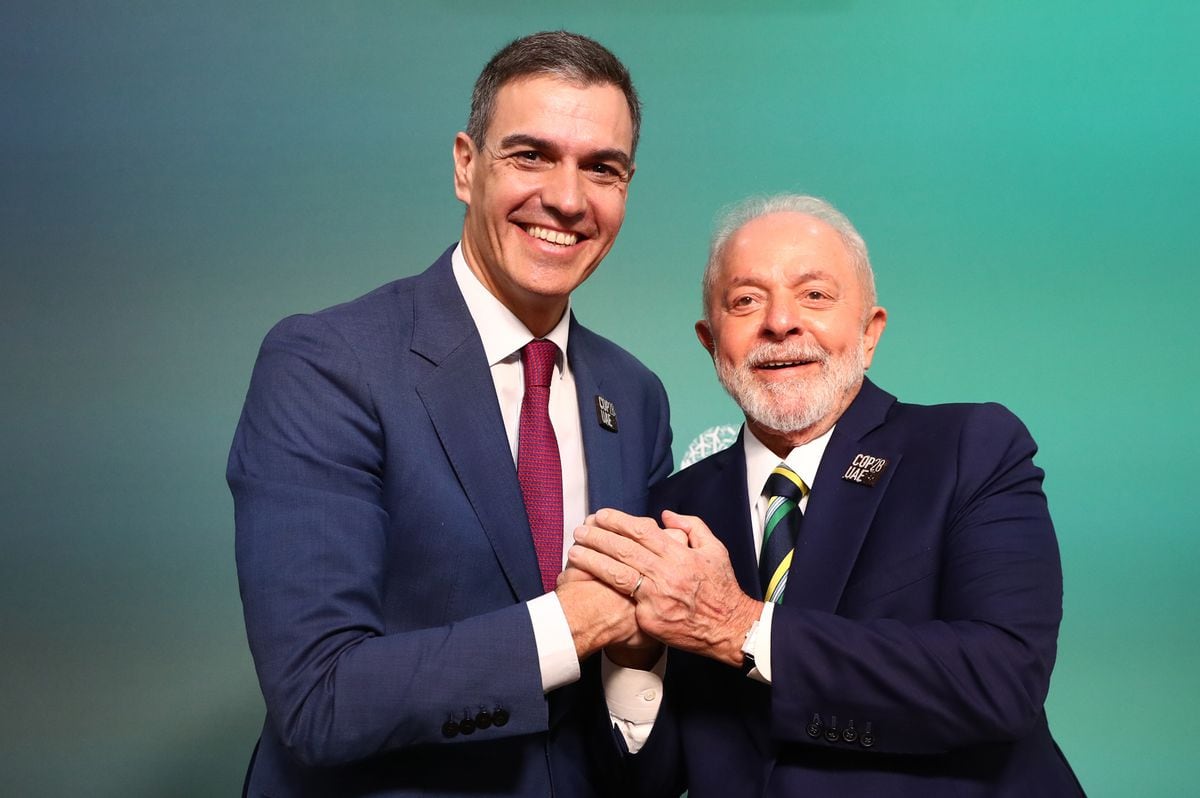
/cloudfront-eu-central-1.images.arcpublishing.com/prisa/IF24TOV3MFHHROUE2LMCLODXWI.jpg)
/cloudfront-eu-central-1.images.arcpublishing.com/prisa/U47VQFQW4FGCBFYMTUPCMC5PKE.jpg)

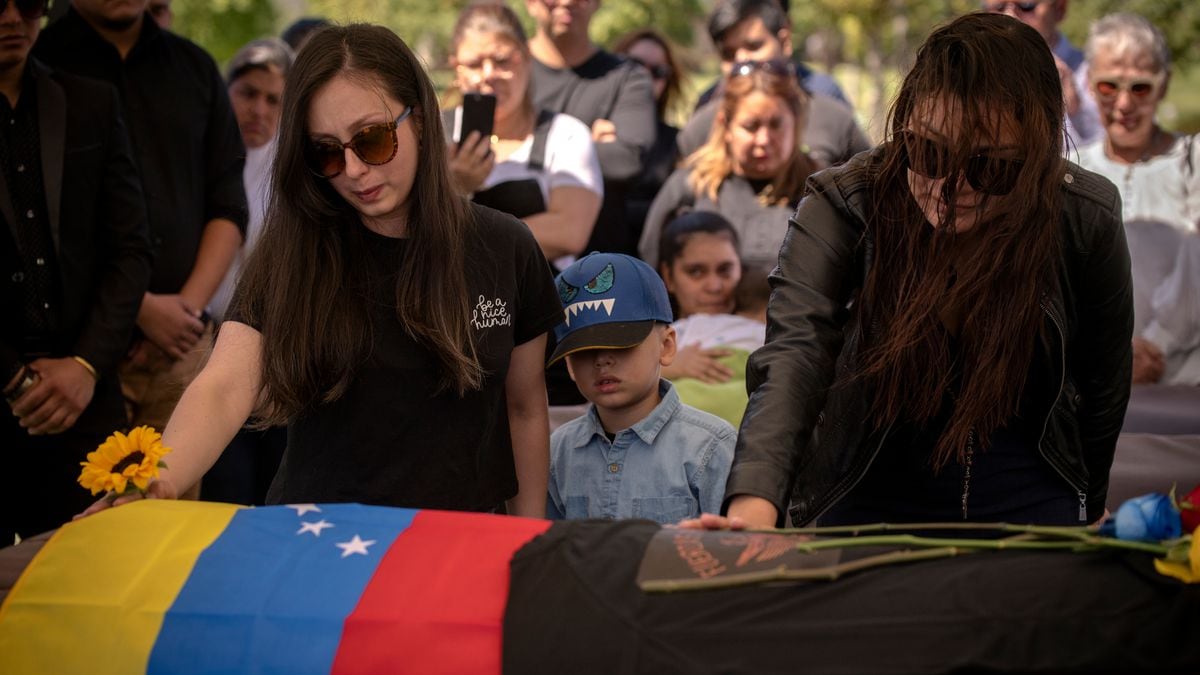
/cloudfront-eu-central-1.images.arcpublishing.com/prisa/IOQ5LVJEOFAEZHGFMYWVXLFURI.jpg)
